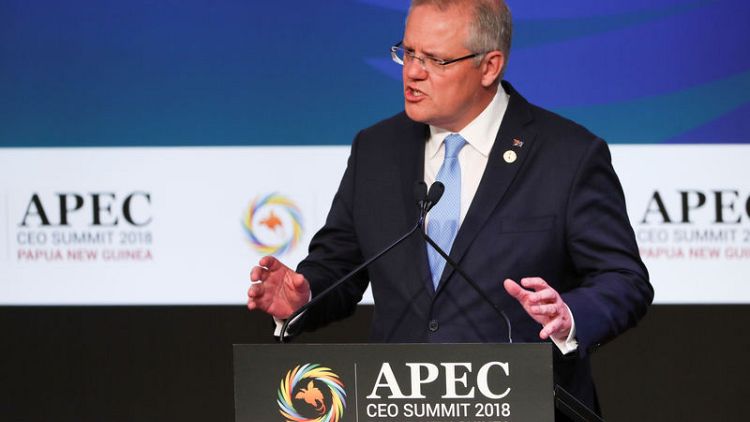By Colin Packham
SYDNEY (Reuters) - Prime Minister Scott Morrison's re-election prospects got a lift on Saturday when Australia's most populous state, New South Wales (NSW), returned his ruling Liberal Party to power.
The NSW election, less than two months before a federal poll, was seen as a test case of Morrison's strategy to seek re-election on the back of his government's economic record.
Speaking shortly after victory was confirmed, Morrison said the victory in NSW foreshadowed a federal victory in May.
"In two months, we'll be back here to celebrate another Liberal/National win," Morrison told supporters in Sydney.
Morrison's government is, however, well behind the main opposition Labor party in the most recent polls, trailing by 54 percent to 46 percent on a two-party preferred basis.
While the Australian economy is the envy of many, NSW's finances are in even better shape. Unemployment in NSW is at a near record low, below even the national level which on Thursday was pegged at 4.9 percent.
State coffers have also swelled, topping more than A$400 billion ($286.44 billion) last year to be worth more than the economies of Thailand, Malaysia and the Philippines, despite signs of a property price-led pullback.
But echoing national discontent, Morrison's Liberal Party saw support ebb away in NSW as some voters felt they have not enjoyed the benefits of the soaring economy.
Despite this and the Liberal Party's coalition partner, the Nationals on course to lose several seats that may cost the government an outright majority, the main opposition Labor party conceded NSW premier Gladys Berejiklian will retain power.
Morrison will now hope to capitalise on the victory when his government delivers its final budget ahead of the election.
The conservative government has promised to deliver the country's first budget surplus in a decade and armed with a hefty war chest, Morrison is likely to also promise tax cuts.
(Reporting by Colin Packham; Editing by Alexander Smith)


